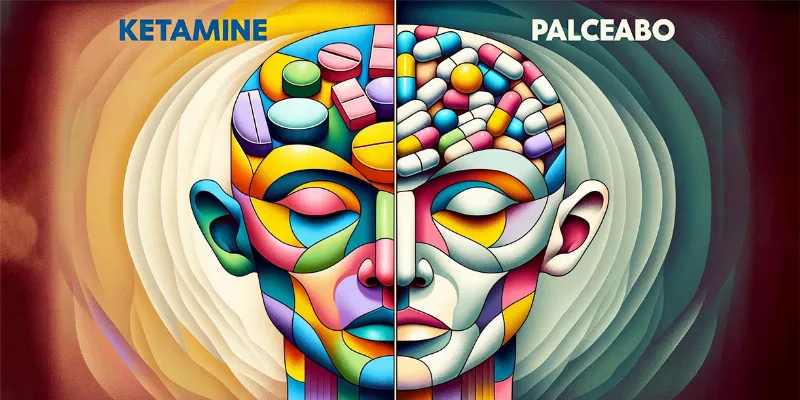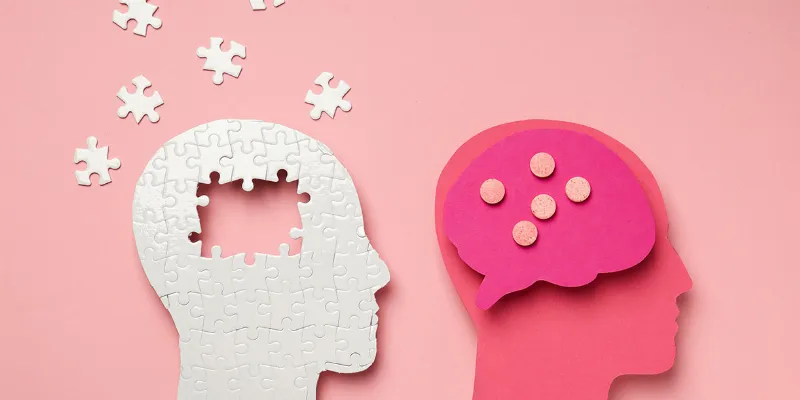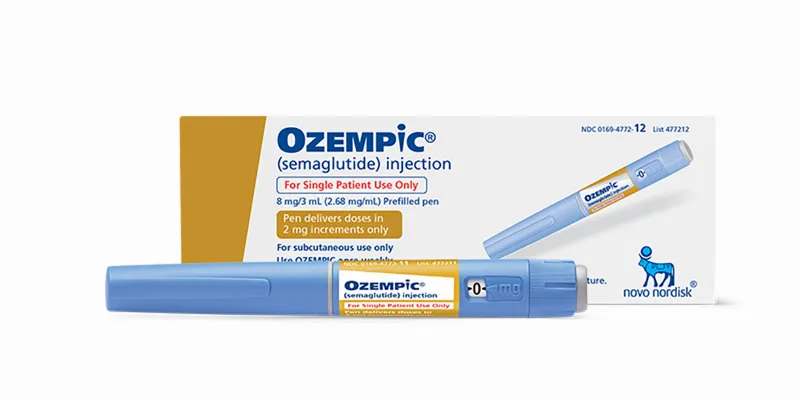Stanford Study Underline the Power of Expectations in Depression Treatment


Psychiatry |
22 October 2023
In a groundbreaking study, Stanford Medicine researchers compared the drug ketamine with a placebo in treating severe depression. Surprisingly, both the ketamine and placebo groups showed significant improvement in depression symptoms. The findings, published in Nature Mental Health, have stirred a new debate: Is it the drug's effect or the power of belief that drives the remarkable antidepressant outcomes observed with ketamine?
The study, suggests that positive expectations or the 'placebo effect' might play a pivotal role in treatment outcomes, emphasizing the potential interplay between drug effects and psychological factors in therapies like ketamine.
Ketamine, initially developed as an anesthetic in 1962, has shown consistent and rapid alleviation of severe depression in numerous studies. However, these studies have often been criticized for a significant flaw: participants can generally discern whether they've received ketamine or a placebo due to the drug's unmistakable psychedelic effects.
To address this, researchers embarked on an inventive approach. They enrolled 40 adult patients diagnosed with moderate to severe depression, all of whom were slated for routine surgeries. During their surgeries, under general anesthesia, patients were administered either ketamine or a placebo. Remarkably, neither the participants nor the medical professionals involved knew which treatment was given.
The results were unexpected and intriguing
“I was very surprised to see this result, especially having talked to some of those patients who said ‘My life is changed, I’ve never felt this way before,’ but they were in the placebo group,” said Boris Heifets, MD, PhD, the senior author of the study.
A day after the treatment, both groups' scores on the Montgomery–Åsberg Depression Rating Scale (MADRS) plummeted by roughly 50%, suggesting a decline from debilitating depression to milder forms.

The findings raise an essential question: How much of ketamine's antidepressant effect stems from the actual pharmacology of the drug, and how much from patients' positive expectations or the so-called 'placebo effect'?
Interestingly, when participants were later asked to guess their treatment, those who felt better were more likely to believe they had received ketamine, regardless of whether they had or not. This indicates that the psychological factors, such as hope or expectancy bias, might play a pivotal role in the treatment's success.
Alan Schatzberg, MD, a co-author, likened the interpretations to deciphering a Picasso painting, emphasizing the complexity of the findings. The team ruled out the surgeries or anesthesia as factors for improvement, suggesting that positive expectations might be integral to ketamine's effectiveness.
But Heifets warned against dismissing ketamine as merely a placebo. He highlighted the robustness of the placebo effect in medicine and suggested that the physiological processes behind hope might share similarities with how ketamine functions, possibly involving the brain's μ-opioid receptors.
In sum, while this trial successfully masked treatment allocation and provided invaluable insights, it also underscores the need for further research to disentangle the intricate interplay between pharmacological and psychological effects in treatments like ketamine.
Randomized trial of ketamine masked by surgical anesthesia in patients with depression
Abstract: Ketamine may have antidepressant properties, but its acute psychoactive effects complicate successful masking in placebo-controlled trials. Here we present a single-center, parallel-arm, triple-masked, randomized, placebo-controlled trial assessing the antidepressant efficacy of intravenous ketamine masked by surgical anesthesia (ClinicalTrials.gov, NCT03861988). Adult patients (N = 40) with major depressive disorder who were scheduled for routine surgery were randomized to a single infusion of ketamine (0.5 mg kg−1) or placebo (saline) during usual anesthesia. All participants, investigators and direct-patient-care staff were masked to treatment allocation. The primary outcome was depression severity measured by the Montgomery–Åsberg Depression Rating Scale at 1, 2 and 3 days post-infusion. After all follow-up visits, participants were asked to guess which intervention they received. A mixed-effects model showed no evidence of effect of treatment assignment on the primary outcome (−5.82, 95% confidence interval −13.3 to 1.64, P = 0.13). Of all participants, 36.8% guessed their treatment assignment correctly; both groups allocated their guesses in similar proportions. In conclusion, a single dose of intravenous ketamine delivered during surgical anesthesia had no greater effect than placebo in acutely reducing the severity of depressive symptoms in adults with major depressive disorder. This trial successfully masked treatment allocation in patients with moderate-to-severe depression using surgical anesthesia. Although this masking strategy is impractical for most placebo-controlled trials, future studies of novel antidepressants with acute psychoactive effects should make efforts to fully mask treatment assignment to minimize participant-expectancy bias.








Comments
No Comments Yet!